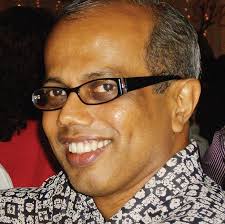Being consistent about human rights
It was not so long ago that boat people or refugees were carted away to immigrant detention centres, facing an uncertain future.
Dec 09, 2016

By Anil Netto
It was not so long ago that boat people or refugees were carted away to immigrant detention centres, facing an uncertain future.
Not so long ago, we had even slid to Tier 3 in the US State Department's annual human trafficking report.
It was probably only when the United States was keen to get Malaysia on board the Trans Pacific Partnership agreement that the country was inexplicably upgraded to Tier Two.
Until recently, few in power seem very concerned about the plight of the Rohingya.
So the new official commitment to “Save the Rohingya” from mass killing, rape, and the burning down of villages is to be welcomed. This is indeed a worthy cause: to highlight the terrible suffering some of these people are experiencing.
But the thing about human rights is that we have to be consistent about our stand.
We should also be concerned about the rights of the Orang Asli to their native land, for instance, as well as a whole range of other political and civil rights that are often violated.
Governments around the world cannot tout their human rights credentials on specific causes without also evaluating their overall records under the Universal Declaration of Human Rights and related Conventions, including those for civil and political rights.
In recent weeks, rights activist, rights groups and media portals have been the target of investigations and, even, arrests.
This is happening around the world, even as economic uncertainty has created despair in many countries and put pressure on governments especially those that are corrupt and authoritarian.
Around the world, human rights defenders are “regularly subjected to harassment and trumped-up criminal charges aiming at paralysing, intimidating and delegitimising their human rights activities. They face difficulties carrying out their work in increasingly restrictive, legislative, and administrative environments denying the right to freedoms of association, expression and peaceful assembly.”
“Licences of human rights NGOs have been steadily cancelled, bank accounts seized and their right to access foreign funds violated. A growing number of States have also developed a systematic pattern of obstacles to human rights defenders’ freedom of movement (in particular through the use of travel bans) in a clear attempt to isolate them.”
Those remarks were contained in a statement by ProtectDefenders.eu, the European Union Human Rights Defenders Mechanism, which was established to protect defenders at high risk and facing the most difficult situations worldwide. The statement was titled Human Rights Defenders are not Criminals.
The activists most affected include land and environmental rights defenders, defenders working on economic, social and cultural rights, freedom of expression, rule of law or accountability issues, said the statement.
In a sense, we shouldn’t be surprised. Those who work hard to bring about a world where universal values such as justice, freedom, democracy rights are often targetted for the work they are doing.
Those of us working towards respect for basic rights must also look at ourselves. Do we advocate only selective rights or are we hoping to create a new world where all human rights under international law are upheld?
The Gospels tell us how Jesus brought the good news to the downtrodden, the captives and the dispossessed. He warned those in high positions not to oppress or place heavy burdens on the ordinary people.
We should therefore beware about adopting a selective approach to rights or ignoring issues just because the victims belong to other religious, ethnic, gender, political or class groups.
Certainly we cannot campaign actively on all rights issues, but the least we can do is not trample or close an eye to the rights of certain oppressed groups while championing the rights of others







Total Comments:0